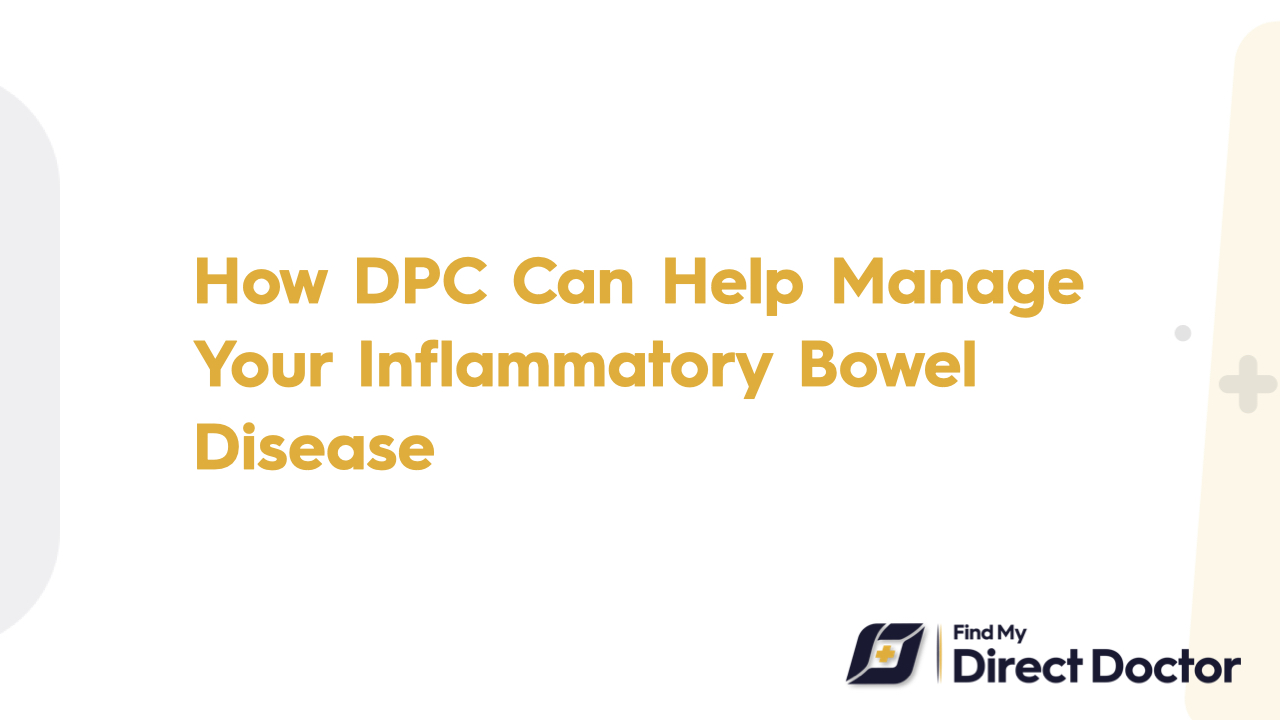



Crohn's disease, ulcerative colitis, and other chronic inflammatory gastrointestinal (GI) disorders are together referred to as Inflammatory Bowel Disease (IBD). A failure in the immune system causes chronic inflammation in the digestive tract in both disorders. Ulcerative colitis is limited to the colon and rectum, whereas Crohn's disease can impact any area of the GI tract.

Constant diarrhea, cramps, abdominal discomfort, and rectal bleeding are some of the symptoms of IBD, which can vary in intensity. Fever, exhaustion, and weight loss are additional typical symptoms that frequently accompany flare-ups. Patients may occasionally have eye irritation, skin rashes, or joint pain. Being a chronic illness that usually cycles between flare-ups and remissions, IBD requires ongoing care and early diagnosis to preserve quality of life.
A more individualized, ongoing approach to controlling IBD is provided by Direct Primary Care (DPC), which gives patients more time for consultations and increased access to their doctor. Individualized care plans created to target the unique causes and symptoms of each patient's ailment are advantageous under the DPC paradigm. Early detection of flare-ups and prompt treatment modifications are made possible by this degree of focus, which is essential for reducing inflammation and averting consequences.
DPC doctors collaborate closely with patients to create a holistic care plan that includes stress management, nutritional advice, and medication management. Since managing IBD necessitates frequent monitoring and modifications, DPC's direct, continuous patient-physician contact guarantees timely attention to any symptom changes. For chronic illnesses like IBD, where proactive management can greatly enhance results, this continuous care strategy is extremely beneficial.
The easier access to care is one of the main advantages of DPC for people with IBD. In contrast to conventional healthcare approaches, which may involve lengthy wait times for appointments, DPC provides same-day or next-day visits in addition to direct phone or text communication. This guarantees that patients can get immediate assistance, particularly when they are suffering new symptoms or flare-ups.
Additionally, DPC promotes a cooperative setting where patients can freely express their worries without the time restraints associated with conventional procedures. Better-tailored care is made possible by more thorough conversations regarding symptoms, triggers, and available treatments. Effective management of IBD can be greatly aided by the DPC model's emphasis on holistic care, which incorporates lifestyle elements like nutrition, exercise, and mental health into the entire treatment plan.
DPC is especially well-suited for managing complicated, chronic illnesses like IBD because it is based on personalized care. Since every patient's experience with IBD is different, DPC doctors take the time to learn about each patient's triggers, lifestyle choices, and reaction to medication. This makes it possible to create personalized treatment plans that adapt to the patient's changing demands over time.
Additionally, DPC doctors emphasize preventive care, educating patients how to manage stress, which is frequently a major contributing factor to IBD exacerbations, and assisting patients in identifying early warning indicators of flare-ups. In order to promote gut health and lessen inflammation, they could suggest customized meal regimens or particular workouts. DPC improves the overall management of IBD by offering ongoing, patient-centered care, which improves the patient's quality of life and symptom control.
Previous Post